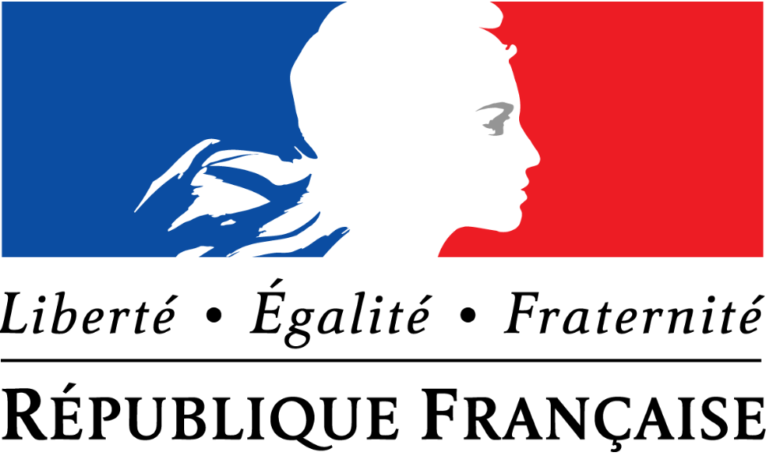The next legislative elections in France (June 30 and July 7 for the second round) tell us a lot about politics. He also suggests some comparisons between American and French politics.
The left-wing parties vying for a majority in the National Assembly have built a populist coalition, the New Popular Front (New Popular Front) or NPF, which temporarily unites left and far left parties, including the Communist Party, in the pursuit of power. In each constituency, the NPF presents a single left-wing candidate. The far-right National Rally (National Gathering) or NR, and the more center-right Republicans (The Republicans or LR) agreed on a similar electoral coalition. Renaissancecurrent President Emmanuel Macron’s center-right party fields candidates in a loose alliance with a few smaller parties.
“Extreme” is a matter of degrees. Many Americans don’t realize that the typical Democrat in America would qualify as center-right in France. A detached analyst would have difficulty finding differences between, for example, Barack Obama and Emmanuel Macron. The political extremes are less extreme in America than in France, but that may have started to change a few years ago.
In the current French electoral campaign, it has been observed that the only program elements on which all the NPF parties really agree are the increase in taxes and transfers, that is to say the redistribution of more money and benefits in kind to favored political clienteles. THE redistribution mainly goes to the poor and the modest middle classes, to the detriment of the “rich” or, in fact, the less rich. It is a general political phenomenon that, whether on the left or the right, those who want to restructure society have difficulty agreeing among themselves on the type of utopia they want.
It is interesting to note that the far right’s program is as populist as that of the far left and targets the same clientele with similar assets, such as more “social” spending, also financed by the “rich”, and some price control. The far right adds its dad less immigration and more protectionism. The left adds “ecological planning” and a higher minimum wage. As Anthony de Jasay would say, in accordance with public choice theory, a political party that wants to get elected pursues the votes of the poorest 50% + 1 of voters by promising to plunder the richest 49% on their behalf. More generally, and whatever the reasons why rationally ignorant voters support this or that party, the essence of politics or the way politics works is to harm some individuals in order to benefit others. At least, that’s politics as we know it.
Mr. Macron’s “center right” is simply more cautious than the extremes, if only because it has already increased the annual budget deficit to 5% of GDP.
Aside from the general workings of politics, a major political similarity between France and America – after the Enlightenment, since America had a fairly short history before that – is that most citizens of each country believe that the freedom (“freedom“) was born and lives in his own country. In reality, in both countries, freedom was undermined, often in the very name of its defense, by their respective glorified political authorities, only earlier and more decisively in France than in America. In America, the worst is yet to come; During the long history of France, this has happened several times.
Marianne is a fictional and attractive woman who historically symbolizes the French Republic. Her image or bust has taken on different aspects over time, recently those of French actresses like Brigitte Bardot. The featured image of this article reproduces the current Marianne logo of the French state. Some may think that Marianne is a sexist symbol, but it certainly illustrates how effective the French government has been in its propaganda and government imagery in fueling national pride and obedience. Classical liberals and libertarians are rightly wary of the glorification of the state.
The imminence of the French legislative elections (like the next American presidential election) illustrates the extent to which it is as difficult as it is necessary to escape the scourge of politics. How can we prevent politicians from competing to discriminate against some citizens in order to favor others? Nobel Prize-winning economist James Buchanan and the school of constitutional political economy he proposed subjecting politics to rules chosen unanimously at a “higher stage”, the constitutional stage. At this abstract point, politics amounts to a mutually beneficial exchange, while everyday politics under Leviathan is about discrimination and exploitation. (See my Econlib review of The book by James Buchanan and Geoffrey Brennan The reason for the rules.) Anthony de Jasay, another economist and political philosopher worth consulting on these issues, proposed a more radical solution: abolish politics; that is to say, completely substituting individual choices for collective choices. (the book by De Jasay The state and his Against politics are good entry points to this radical theory; the links are to my Econlib reviews.)
Pessimists will be of the opinion that either ideal is far from being possible. I would counter that it is necessary to consider something along these lines for the future of individual freedom and prosperity.


